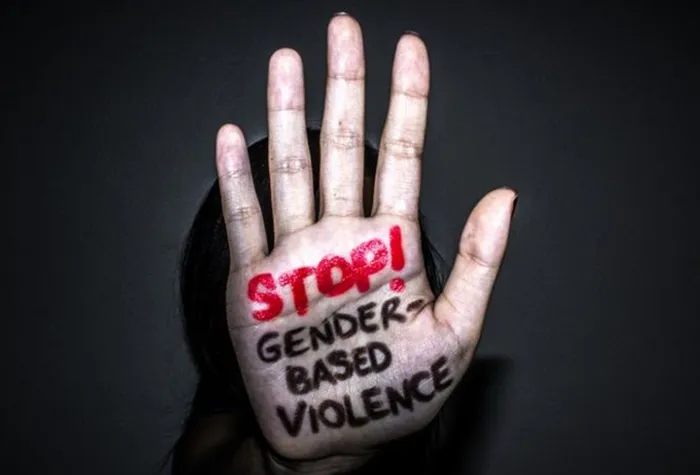The pandemic of gender-based violence and sexual violations: a call for action
DISTRESSING SURGE

Gender-Based Violence and sexual offences remain a growing concern in the country.
Image: File photo
AS SOUTH Africa grapples with an alarming surge in sexual offences and gender-based violence (GBV), some organisations have described it as nothing short of a pandemic.
Vanessa Samuel-Chetty, the founder and director of The Hope Foundation, said sexual violations, especially against children, were alarming.
“What is more concerning is that we are seeing more babies, some who are just a few days old, being violated. In most cases, the perpetrators are family members or people known.
“The message that is often shared with children about ‘stranger danger’ is incomplete. They need to be taught to be wary of everyone, which is sad. We are also seeing children being used as ‘weapons’ to get revenge against a parent or parents."
Samuel-Chetty said while they received between 5 and 20 calls a day requesting assistance, the intensity of the violations differed.
“One call could last an hour due to its sensitivity, such as a child that had been raped by her biological father. Our role is to help them by providing them with the next steps they have to follow, whether it is a case of domestic violence or a sexual violation. We also offer the victims and their families support throughout the process.”
Samuel-Chetty said to combat online violations, she, together with a group of people from around the world, had proposed the Take Down Bill in the United States last year. In January, it was passed into law.
“As part of a global summit to end sexual exploitation, we went to the US Senate to propose the bill. With it being passed, what it essentially means is that we are no longer fighting foot soldiers. If someone puts a harmful image of a person, we are now holding the five big tech companies that are based in the US accountable.
"In the South African context, one would have to approach the high court to get an order and then get Interpol involved. The bill allows for a direct link. The company has 48 hours to take down the image from its social media platform, or they will be criminally accountable. This is a huge victory when we see the number of cases of women and men being violated in the online space.”
Samuel-Chetty, who also sits on the steering committee of the national dialogue, championing the cause of GBV, said it was a pandemic.
“I can say this with total confidence. What we are facing is a pandemic. GBV and the violation of children are a pandemic. It needs to be treated as and dealt with as a pandemic. Unfortunately, not enough is being done, especially to protect children and that needs to change.
“We often ask ourselves the questions, 'will we ever be able to do enough' and the answer is we can only try, but it is also important that individuals educate themselves about the resources available to them. Many victims don’t know what to do in such situations, such as a rape.
“However, we have Thuthuzela Care Centres across the country, which are there to ensure justice for children, women and men who are victims of sexual violence. We also encourage victims not to wait, especially in the case of a rape. The evidence plays a critical part in securing a conviction against a perpetrator. In addition, we also have legislations such as the Sexual Offences Act, Domestic Violence Act and Children's Act that have brilliantly been put in place to protect citizens."
She said society also had a role to play in curbing GBV and sexual offences.
“Don't turn away, especially if you suspect a child is being violated. Many people think because it is not a child they should not take a stand, but what if it was your child? Society needs to stand together and not be afraid to speak up, you could save a life.”
Daniel Chettiar, the founder of the DSK Group, said they daily dealt with several cases of GBV and sexual offences. He said the areas with high number reports of GBV and rape on the North Coast of KwaZulu-Natal were Tongaat, Verulam and Phoenix.
“We thought that the high number of cases we had seen a few years ago was due to the Covid-19 pandemic, but what we are seeing now is even worse. GBV is a pandemic itself. According to our statistics, between July 1, 2024, and August 31 this year, we had 93 cases of rape and 278 case of domestic violence.
“We receive daily reports of women being brutally assaulted as well as children being sexually violated, in many cases at the hands of their own family members. However, we refer those cases to the Department of Social Development,” he said.
Charlene Singh, the spokesperson for WomanPACT, said: “The reality is that these statistics point to what can only be described as a pandemic.”
She said they worked mainly in Phoenix, Waterloo, Inanda and Mayville, where poverty and inequality made women vulnerable.
“The most common violations are sexual harassment, rape, and intimate partner abuse, with many victims being teenagers and young women in their early 20s. Psychological violence, constant verbal abuse, threats, and humiliation, are also widespread and often normalised.”
On average they received between three and five calls a day for assistance.
“We also receive at least 30 messages a week on our social media platforms. This is a clear demonstration of a spike in GBV incidents.”
Singh said women were not reporting cases because they did not trust the system and their fears were often justified.
“Law enforcement needs to improve how the cases are handled from the moment a survivor walks into a police station. At the same time communities must shift away from blaming victims and start holding perpetrators accountable. Without this, the cycle of silence and abuse will continue.”
Related Topics: